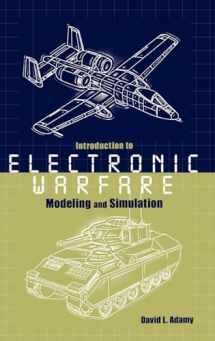
Introduction to Electronic Warfare Modeling Simulation (Artech House Radar Library (Hardcover))
Book details
Summary
Description
This unique, new book covers the whole field of electronic warfare modeling and simulation at a systems level, including chapters that describe basic electronic warfare (Ew) concepts. Written by a well-known expert in the field with more than 24 years of experience, the book explores Ew applications and techniques and the radio frequency spectrum, with primary emphasis on Hf (high frequency) to microwave. A detailed resource for entry-level engineering personnel in Ew, military personnel with no radio or communications engineering background, technicians and software professionals, the work helps you understand the basic concepts required for modeling and simulation, as well as fidelity and other practical aspects of simulation design and application. You get clear explanations of important mathematical concepts, such as decibel notation and spherical trigonometry. This informative reference explains how to facilitate the generation of realistic computer models of Ew equipment. Moreover, it describes specific types of Ew equipment, how they work and how each is mathematically modeled. The book concludes with a description of the various types of models and simulations and the ways they are applied to training and equipment testing tasks.


We would LOVE it if you could help us and other readers by reviewing the book
Book review



